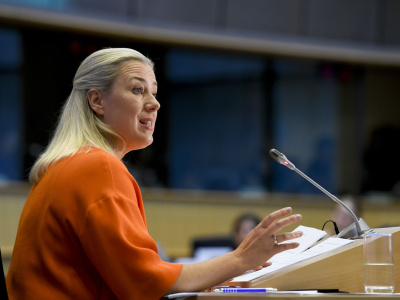Background
Following the Cotonou Agreement signed on 23 June 2000, a new trade framework was put in place to bring about the gradual removal of trade barriers between the EU and ACP countries to ensure conformity with the World Trade Organization (WTO) rules. It was understood that in order to achieve this objective, Economic Partnership Agreements (EPAs) would be negotiated as from September 2002, so as to bring trade between the European Union (EU) and the ACP countries into conformity with WTO rules.
For every preference that entails discrimination among WTO members a WTO waiver is required.
Key Purpose of ECDPM Study
This analysis aims to examine whether the diplomatic and trade environment at the WTO is favourable to the introduction of a new waiver that would extend the Cotonou trade regime between the ACP countries and the European Union which is due to expire on 31 December 2007.
If this were the case, what would be the obstacles that must be overcome by the two partners, both from a procedural and legal standpoint, to be able to negotiate its acceptance between now and 31 December 2007? Would a new waiver be the best option for the parties to the Cotonou Agreement to enable them to meet the challenge of ensuring the harmonious integration of the ACP countries into the multilateral trading system?
Key Findings of ECDPM
- There exists a rather heavy atmosphere within the Goods Council regarding waivers and, particularly concerning the ACP-EC waivers included in the two ministerial decisions taken in Doha on 14 November 2001. The main group of countries which could refuse the adoption of a new waiver is the Latin-American MFN banana-producing countries.
- There is a way for the ACP countries in general and more so the African countries, to reduce the Latin-American resistance to the waiver by using the conclusions of the 1st Summit of Heads of State from Africa and South America held in Abuja, Nigeria, on 30 November 2006, especially the text called the Abuja Declaration and the Plan of Action which endorsed the discussions.
- The ACP countries should situate themselves in the context of a dynamic long-term perspective and seek to safeguard their preferences within the framework of the ongoing EpA negotiations which, when concluded, would constitute the better way forward. In that way, the preferences would be protected from any potential litigation due to the legal coverage provided under Article XXI of the GATT and the flexibility it affords. This implies, however, that the ACP countries will adopt a strategic vision of their trading ties with the EU by identifying the constraints linked to the DOha multilateral process and seeking a long-term multilateral solution to the issue of preferences, the temporary comfort of a WTO waiver, and lastly, their overall development prospects.
- The harmonious integration of the ACP countries into the multilateral trading system and the enhancement of their development prospects will require in-depth consideration and analysis based on this strategic approach.


